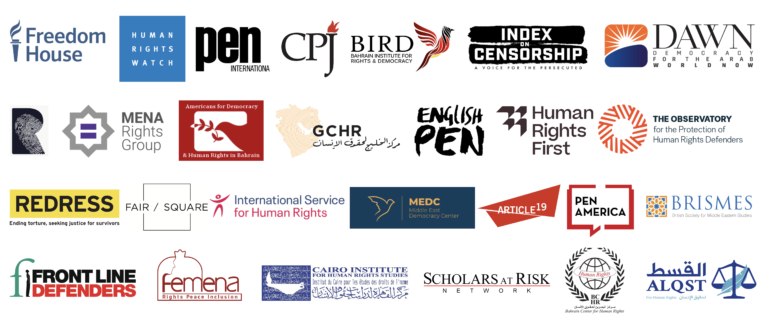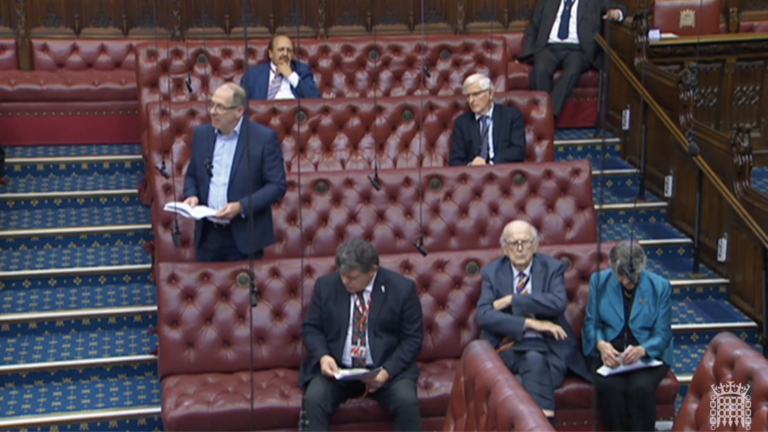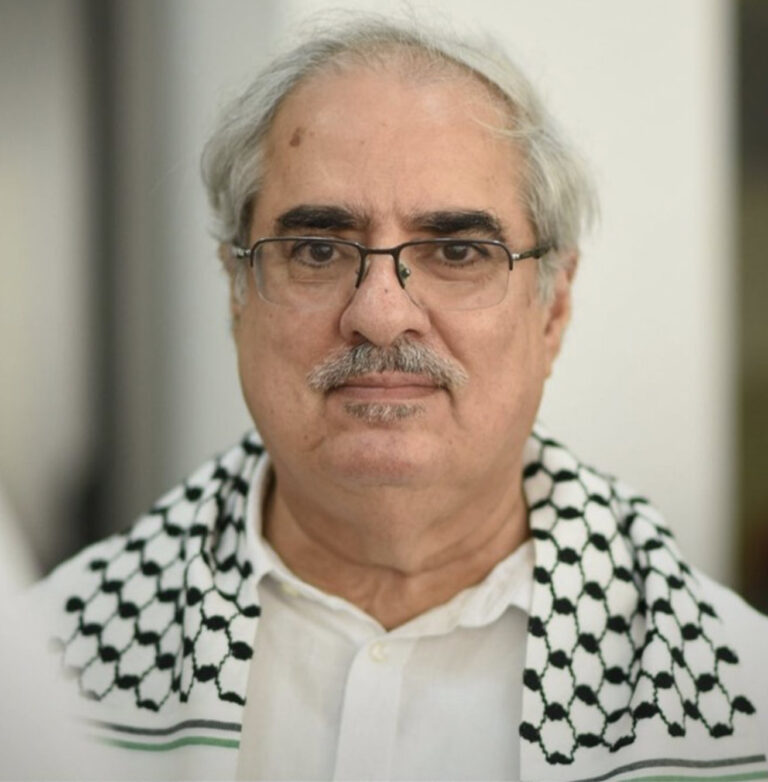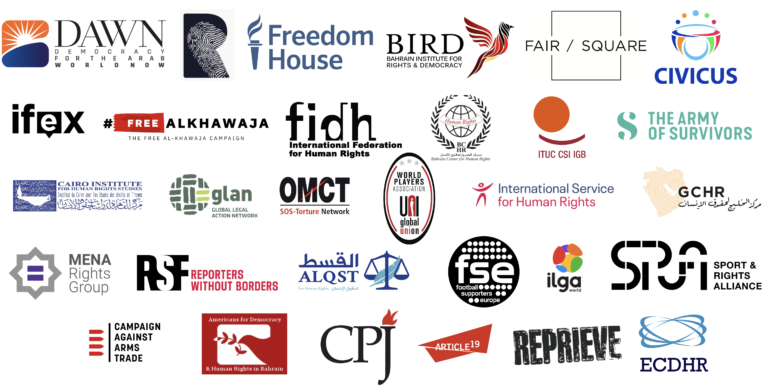21 December 2020 – The chair of the All-Party Parliamentary Group on Democracy and Human Rights in the Gulf (DHRG), Brendan O’Hara MP, has written to UK Foreign Secretary, Dominic Raab, urging him to intervene on behalf of three prominent Bahraini political prisoners facing sustained medical negligence at Jau Prison in Bahrain, to ensure the “immediate provision of adequate medical care” and secure their release, the Bahrain Institute for Rights and Democracy (BIRD) stated today.
Today, @BrendanOHaraMP wrote to @DominicRaab urging him to intervene in cases of severe medical neglect of political prisoners in #Bahrain.
He found @BIRD_Bahrain’s reports on Hassan Mushaima, Dr Abduljalil AlSingace & Sheikh AlMuqdad "very concerning" & urged for their release. pic.twitter.com/hetnXKc4dY
— BIRD (@BirdBahrain_) December 21, 2020
Dr Abduljalil AlSingace (58), Sheikh Mohammed Habib AlMuqdad (58), and Hassan Mushaima (72) are leading figures in Bahrain’s political opposition serving lengthy sentences after being convicted for their role in the country’s 2011 Arab Spring protests. All three have a number of chronic medical conditions and continue to suffer from injuries sustained as a result of torture they were subjected to in 2011. In his letter, O’Hara noted that “over the last few years, persistent medical negligence by prison authorities has further endangered these mens’ lives” heightening the risk posed to them by COVID-19.
Sheikh AlMuqdad, a Swedish-Bahraini dual national, is an opposition leader and religious figure serving multiple life sentences. He is currently awaiting three operations to unblock his coronary arteries, repair a hernia and address an issue with his prostate. However, to date prison authorities continue to delay the operations, leaving him in pain so severe that it sometimes restricts his ability to move.
Dr AlSingace, an academic, blogger and former spokesman for the Al-Haq opposition group, suffers from a range of illnesses including post-polio syndrome, vertigo, a slipped disk, heartburn and paresthesias in his muscles and limbs. Despite his condition, prison authorities have routinely refused to take him to appointments with medical specialists due to his refusal to submit to attending in shackles which violate international law. Consequently, he has not received an EEG test, despite recommendations by a neurologist. The prison has also failed to provide Dr AlSingace with his requisite medication for several months, nor replacement rubber stoppers for his crutches to prevent falls.
Similarly, prison authorities have also persistently failed to take Mr Mushaima, former leader of Al-Haq, to specialist appointments due to his refusal to submit to humiliating shackling which contravene the Mandela Rules. Despite being rushed to hospital twice since October due to dangerously high blood pressure, Jau Prison has failed to organise follow-up appointments with a cardiologist, putting him at significant risk. Urgent appointments with an endocrinologist to address complications from his diabetes, an ENT specialist to address an ear problem linked to torture in 2011 and a urologist for an ongoing prostate issue have also failed to materialise, while a PET scan to monitor his remission from cancer is now eight months overdue.
In calling on Raab to intervene, O’Hara noted that “the issue of medical negligence against AlSingace, Mushaima and AlMuqdad has been raised consistently with the British government since their imprisonment in 2011.” Their case, widely known as the ‘Case of Leading Activists’, was condemned by the British government in 2012 due to reports, recognised in the Bahrain Independent Commission of Inquiry, that detainees had been tortured, denied access to legal counsel and coerced into confessing.
In April, BIRD, Human Rights Watch and 19 other NGOs called on Bahrain to release human rights defenders, opposition activists, journalists, and all others imprisoned solely for peacefully exercising their rights,” in light of the government’s failure to provide adequate medical care and the risk posed by COVID-19.
Sayed Ahmed Alwadaei, Director of the Bahrain Institute for Rights and Democracy (BIRD), commented: “Bahrain’s protracted medical negligence against men who should never have spent one second in prison is tantamount to torture. After years of inaction, It is high time the UK government loudly and publicly calls for the release of Hassan Mushaima, Dr Abduljalil AlSingace and Sheikh Mohammed Habib AlMuqdad. Under intensifying calls from Parliamentarians, Dominic Raab can no longer ignore the dire human suffering in Bahrain’s prisons.”
Husain Abdullah, Executive Director of Americans for Democracy and Human Rights in Bahrain (ADHRB) commented: “It is outrageous that these three men continue to suffer perilous medical negligence, in flagrant violation of their most basic rights. For years, the UK and the USA have chosen to turn a blind eye to their plights despite mounting evidence and pressure from the international community. The UK and US have long ignored human rights; with the coming Biden administration both countries must work together to end the abuses of their Gulf ally.”
Read the full letter here:
December 21st 2020
Dear Dominic Raab,
I hope this letter finds you well. I am writing to draw your attention to several recent, very concerning reports of medical negligence against vulnerable Bahraini political prisoners in Jau Prison, Bahrain. These reports were sent to me by the London-based Bahrain Institute of Rights and Democracy (BIRD), and I have attached these reports with this letter.
Dr Abduljalil AlSingace 58, Sheikh Mohammed Habib AlMuqdad 58, and Hassan Mushaima 72 are high profile Bahraini opposition figures who are currently serving lengthy prison sentences after being convicted for their role in Bahrain’s 2011 pro-democracy protest movement. In 2012, the UK government stated that it was “very disappointed” by their conviction due to reports, recognised in the Bahrain Independent Commission of Inquiry, that detainees had been tortured, denied access to legal counsel and coerced into confessing.
All three men have a number of chronic medical conditions and continue to suffer from injuries sustained as a result of the torture they were subjected to in 2011. Consequently, all three are highly vulnerable to Covid-19. The threat posed to prisoners by the coronavirus led a coalition of 19 NGOs, including Human Rights Watch and Amnesty International, to urge Bahrain earlier this year to release all imprisoned rights defenders and opposition activists imprisoned solely for peacefully exercising their rights to freedom of expression, assembly, and association.
In recent calls with BIRD, the men have complained of the denial of medical treatment and long delays in receiving necessary medication, which has led to the development of further health complications. Over the last few years, persistent medical negligence by prison authorities has further endangered these mens’ lives. The issue of medical negligence against AlSingace, Mushaima and AlMuqdad have been raised consistently with the British government since their imprisonment in 2011.
In light of these worrying developments, I kindly ask that you urgently intervene with your counterparts in Bahrain to:
- Ensure the immediate provision of adequate medical care; and
- Secure the immediate release of Dr Abduljalil AlSingace, Sheikh Habib AlMuqdad and Hassan Mushaima, and all political prisoners, activists and those who have been detained or convicted solely for the exercise of the rights to freedom of expression, association, or peaceful assembly.
Please find attached a briefing document on these cases of medical negligence against Political Prisoners.
Yours sincerely,
Brendan O’Hara MP
Argyll & Bute
Chair, APPG Democracy and Human Rights in the Gulf
Case of Medical Negligence against Political Prisoners
Updated 16 December 2020
Important updates provided to BIRD on medical negligence against Bahraini political prisoners during COVID-19 Pandemic
- Since Covid-19 erupted, Bahraini prisoners have been facing serious issues regarding their medical treatment.
- Many inmates have confirmed that since March, the Bahraini administration at Jau prison has suspended appointments at external hospitals for all inmates.
- Many inmates have not been taken to specialist medical appointments for over four years due to prison authorities’ insistence on shackling elderly and infirm patients, which are a breach of international law.
- Many political prisoners are elderly and/or suffer from underlying medical conditions that put them at high risk from COVID-19, but were excluded from prisoner releases.
- Human Rights Watch and BIRD highlighted several of the cases below in October 2019, but many of their problems remain unaddressed, which is in violation of Rule 47 the UN Standard Minimum Rules for the Treatment of Prisoners (Mandela Rules).
Prisoners from the “Case of Leading Activists”
Among the most renowned political prisoners currently incarcerated in Bahrain are high-profile political opposition leaders, activists and human rights defenders convicted by military tribunal for their roles in the 2011 pro-democracy protest movement in the so called “Case of Leading Activists.” All are serving lengthy prison sentences and many are elderly and/or suffer from pre-existing health conditions which make them particularly vulnerable to diseases like COVID-19. Among these vulnerable individuals are Dr Abduljalil AlSingace, Hassan Mushaima, who were featured in the Bahrain Independent Commission of Inquiry, and Sheikh Habib AlMuqdad. All three recently provided updates on their health conditions, which are outlined below.
Since 2017, prison authorities have routinely failed to take the three men to appointments due to his refusal to submit to wearing humiliating shackles during transfers to his appointments. International human rights mechanisms have said that the use of restraints on elderly or infirm prisoners who do not pose an escape risk can constitute ill-treatment.
Measures Imposed since COVID-19
Since February 25 2020, when the Ministry of Interior announced all family visits in prisons would be suspended due to COVID-19, all prisoners have been prevented from seeing their loved ones, instead replacing visits with video calls.
Furthermore, just last week, prison authorities informed political prisoners in Building 7 of Jau Prison, where all three men are held, that they would only be permitted to phone a maximum of five contact numbers. As of December 2020, all of the high profile 13 leading opposition and human rights activists informed their families that they will not make or receive any external telephone calls in protest of the newly imposed measures in prison limiting prisoners to only five contact numbers.
The restriction of limited contact numbers is punitive and further restricts prisoner’s abilities to connect with their families especially during these difficult times. In Bahrain, the average nuclear family consists of more than five individuals, meaning prisoners will have many siblings, in-laws, parents and grandparents. Many prisoners also have their own families with children and grandchildren. The restriction to only five contacts means prisoners are forced to sacrifice which loved ones to keep in touch with.
Regarding precautionary measures for coronavirus, prisoners have not been provided with masks, gloves or any other kind of PPE except for Dettol, with which they are supposed to sanitise their cells.
Dr Abduljalil AlSingace, 58
Dr AlSingace is an academic and blogger who was a spokesman for Al-Haq, an opposition group. AlSingace has complained of persistent medical negligence by prison authorities, specifically their regular refusal to take him to appointments with medical specialists over the past four years. He was last visited by a neurologist at the prison three to four months ago, who recommended an EEG test (electroencephalogram). Despite this, an appointment has yet to be scheduled.
Furthermore, the prison has not provided Dr AlSingace with his requisite medicine for several months and the replacement of rubber stoppers for his crutches to prevent falls and ease the pain in his shoulders are consistently and unnecessarily delayed. In the past, he has been forced to attach his slippers to his crutches to prevent falls. This is especially concerning since he has been suffering increasing bouts of vertigo and dizziness causing him to fall over.
Dr AlSingace suffers from:
- Post-polio syndrome, requiring crutches to walk;
- Vertigo, causing him to lose his balance and fall;
- A slipped disk in his back and neck, causing chronic pain;
- Heartburn; and
- Paresthesias in his muscles and limbs.
Sheikh Mohammed Habib AlMuqdad, 58
Sheikh Mohammed Habib AlMuqdad is a political opposition leader and religious figure who was sentenced to multiple life sentences in connection with his role in the Bahrain Uprising of 2011. AlMuqdad holds dual citizenship; he is Bahraini and Swedish.
AlMuqdad has been suffering from various injuries sustained during his arrest and torture in 2011. At times, the pain is so severe that it restricts his ability to move.
AlMuqdad reported that he is currently waiting for three operations to:
- Unblock his coronary arteries;
- Repair a hernia; and to
- Operate on his prostate.
As of December 2020, the prison administration continues to delay his surgeries, blaming the ongoing COVID-19 pandemic. Earlier this month, AlMuqdad was taken to the Bahrain Defence Force (BDF) Hospital where he was told he would have an operation by the end of January 2021 to address two of his three issues. However, no date has been confirmed and there is no guarantee that he will be taken without further delays. To date, there has been no progress on the operation needed on his prostate.
Hassan Mushaima, 72
Hassan Mushaima, is the former leader of opposition group Al-Haq.
Mushaima suffers from:
Diabetes:
- Mushaima takes two tablets and four insulin injections a day; he last saw an endocrinologist four years ago. As a result, Mushaima suffers from various complications including:
- appearance of black spots across both of his feet;
- constant feeling of numbness in his legs and feet;
- increased blood sugar levels caused by the poor quality of food provided by the authorities; and
- Gout in his feet, which is dependent upon his insulin levels being regulated and a purine restricted diet to lower the risk of recurrent gout attacks and to slow the progression of joint damage.
- Mushaima urgently needs to be seen by an endocrinologist.
High blood pressure:
- Following a sharp increase in his blood pressure in recent months, Mushaima was taken to the Bahrain Defence Force Hospital on 19th October after his condition became life threatening;
- On 15 November 2020, he was examined by a cardiologist and given further tablets to regulate high blood pressure. The doctor informed him that he needed a follow-up appointment the following month. As of today, Mushaima has not received any indication of whether this appointment will be scheduled.
- Mushaima requires a follow-up appointment to be scheduled urgently.
Right ear:
- Due to torture and beatings on his face in 2011, Mushaima is losing his ability to hear from his right ear;
- Mushaima needs to see an ENT specialist.
Prostate:
- Mushaima has an ongoing problem with his prostate, which requires specialised care.
- Mushaima needs to be taken to a specialist for his prostate.
Remission from Cancer:
- Mushaima’s last PET scan was taken in October 2019. It is now eight months overdue.
- Mushaima needs to be urgently taken for a PET scan.





